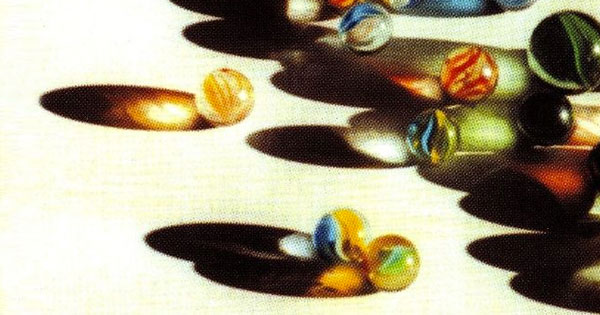
My high school required every student to take three years of a foreign language, so I took German. I was a horrible at it, but I fell in love with German culture, especially the modernist writers. Very little stuck with me—what does, when you’re 17?—but the one book I return to repeatedly is Herman Hesse’s The Glass Bead Game.
It is not the best book of the era; Buddenbrooks, The Magic Mountain, and Doctor Faustus are all better—and that’s just Thomas Mann. But it is singular: a genre blend of science fiction, fantasy, and fictional biography, leavened with musicology, poetry, and Hesse’s unique swirl of Eastern and Western philosophy (and, to be fair, the Nobel committee singled it out when it gave Hesse the prize for literature in 1946). For a budding pseudo-intellectual like me, it was literary catnip.
The Glass Bead Game is set in a distant, possibly post-apocalyptic future and tells the life story of Joseph Knecht, who at the beginning is a young initiate in Castalia, a monastic order of secular scholars. His fellow monks study various subjects, but they are linked by a vaguely defined activity called the Glass Bead Game. Hesse never explains the game, except to say that it involves all forms of knowledge, particularly mathematics and music. Knecht works his way up in the order, finally becoming the Magister Ludi, or master of the game.
All the while, Knecht is in touch with a childhood friend, Designori, who hails from a wealthy family and becomes an influential politician. Through a series of dialogues with Designori, Knecht becomes disillusioned with his life in Castalia, and at the end of the book leaves the order to become a tutor to Designori’s son.
For most people, Hesse’s appeal comes in books like Siddhartha, a parable about the search for self-knowledge during the life of the Buddha that was venerated by millions of hippies in the 1960s.
All of Hesse’s work has its appeal, but nothing spoke to me as clearly as The Glass Bead Game. In high school and college, I concentrated on Knecht’s adulation of scholarship as a path to wisdom, and I would dip into it during long nights at the library. After graduation, that same instinct fueled my interest in graduate school, and doctoral research.
The last time I read The Glass Bead Game was in the winter of 2003. I had just been hired as an assistant editor at a magazine, but I was also waiting to hear back from graduate schools. When I received my acceptance offers, I had to make a choice. And suddenly the lens shifted, and I read the book differently. Knecht’s disillusionment with Castalia came into focus, and I saw Hesse’s real point, that scholarship can only become wisdom when it is put into contact with the real world.
I have often wondered if I made the right decision in passing on graduate school and sticking with journalism. But in moments of doubt, I go back to Hesse, and everything is clear.


